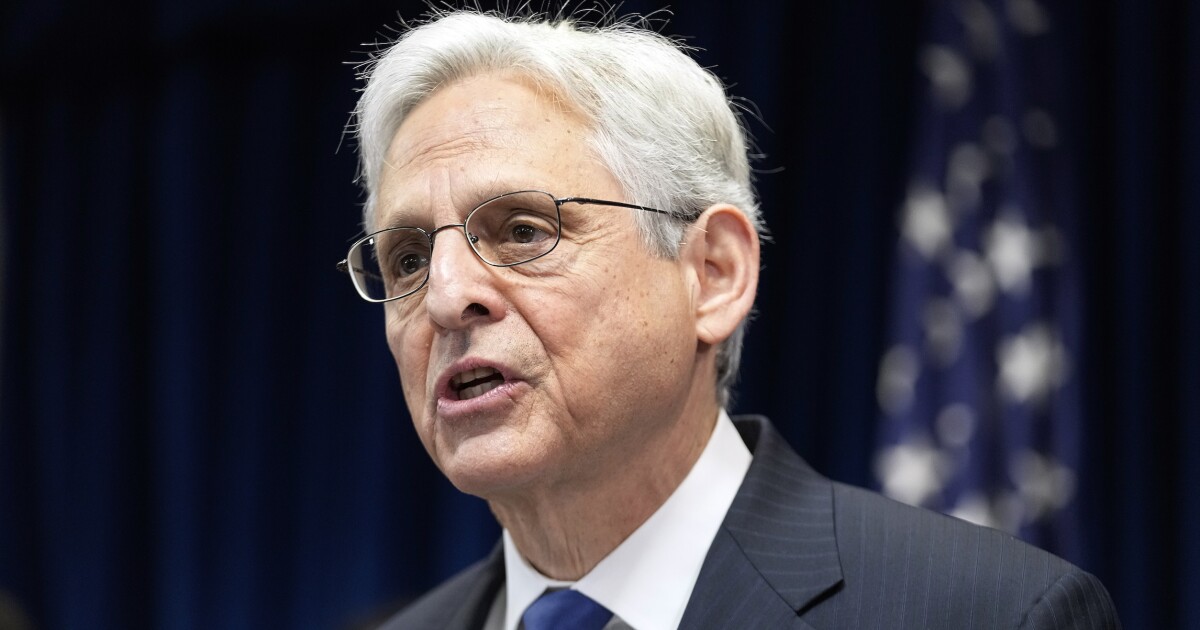

EXCLUSIVE — The Department of Justice informed the House Judiciary Committee on Tuesday night that it would not cooperate with subpoenas for two FBI agents involved in the department’s investigation of Hunter Biden because of the committee’s stipulations for their depositions.
Carlos Uriarte, DOJ assistant attorney general, claimed in a letter obtained by the Washington Examiner to committee Chairman Jim Jordan (R-OH) that his subpoenas to the two agents “lack legal effect and cannot constitutionally be enforced” because Jordan had prohibited DOJ lawyers at their depositions.
IDALIA PATH TRACKER WATCH LIVE: WHERE IS THE HURRICANE AND WHERE WILL IT MAKE LANDFALL
“The subpoenas issued by the Committee prohibit the attendance of agency counsel at appearances by two FBI employees where the Committee has indicated it will ask questions regarding information they learned within the scope of their official duties, including regarding the ongoing criminal investigation,” Uriarte wrote.
He also noted that compelling testimony from the pair of FBI officials, special agents Thomas Sobocinski and Ryeshia Holley of the FBI’s Baltimore Field Office, “was premature.”
Jordan’s deposition rule aligned with House rules, which do not permit department counsel at depositions. The DOJ and the committee could, however, negotiate to have Sobocinski and Holley appear voluntarily with DOJ lawyers instead of appearing in the form of a deposition.
Negotiations seem plausible as Uriarte was deferential to the committee’s oversight authority throughout the letter while continuously warning that the DOJ’s Biden investigation, led by newly appointed special counsel David Weiss, was ongoing and that information flow would be limited during that time.
Concerns about sharing non-public details about a current investigation “are heightened while a matter is open and investigative steps, prosecutorial decisions, or judicial proceedings are ongoing. As Mr. Weiss and his office have repeatedly stated, his investigation remains ongoing,” Uriarte wrote.
The letter comes in response to Jordan and House Ways and Means Committee Chairman Jason Smith (R-MO) issuing four subpoenas this month, two to the FBI and two to the IRS, in regard to the yearslong investigation into Biden.
The chairmen alleged that the investigation had been “purposely slow-walked,” basing the allegations in part on whistleblower testimony from two veteran IRS agents involved in the investigation. The whistleblowers testified in May about a meeting that occurred last October during which Weiss allegedly said he lacked the necessary authority to bring certain charges against Biden.
Jordan said the two FBI officials, Sobocinski and Holley, had jurisdiction over the FBI’s Wilmington office, where the Biden investigation was based. He also said they were present at the October meeting.
Weiss and Biden’s attorneys had nearly struck a plea deal in June involving Biden pleading guilty to two misdemeanor tax charges and entering into a pretrial diversion agreement to avoid a felony gun charge.
The deal took an unexpected turn during a plea hearing in July, however, when a federal judge called into question its immunity provisions and whether it would prevent Biden from facing future charges, particularly for violations of the Foreign Agents Registration Act.
After the hearing, Weiss and defense lawyers hit an “impasse” and now could be headed for trial in the case, according to court filings.
Prior to Garland appointing him as special counsel this month, the DOJ had vowed to Jordan that Weiss would publicly testify before his committee in September or October.
While the DOJ has not appeared to rescind this offer in the wake of Weiss’s appointment, Uriarte did note that Weiss would be required, per special counsel rules, to issue a public report about any prosecution decisions at the end of his inquiry.
CLICK HERE TO READ MORE FROM THE WASHINGTON EXAMINER
He also added that the time for testimony from anyone at the DOJ involved in the investigation would be “most appropriate” once the investigation is closed.
“As we and Mr. Weiss himself have noted, the most appropriate time for any testimony on the subject of any individual ongoing criminal investigation is after the matter is closed,” Uriarte wrote.
Read the DOJ’s letter below:






